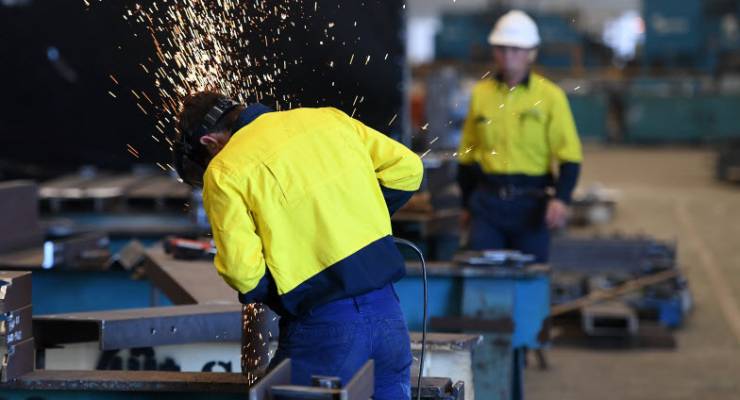
You couldn’t get a better example of how addicted to bad policy and old ideas Australian business is than yesterday’s effort from major employer group the Australian Chamber of Commerce and Industry.
It wants skilled migration to be doubled to 200,000 a year to address “skill shortages”. It was immaculate timing, given that Reserve Bank released the minutes of its October board meeting yesterday morning. The Bank noted:
Even in industries that had experienced strong labour demand, wages growth remained subdued. In reviewing wages growth across different types of wage-setting arrangements, members noted that a small share of people on individual agreements had received larger wage increases over recent quarters, in part reflecting earlier wage cuts that had been reversed. Overall, there were few indications from disaggregated wages data or from the bank’s liaison program to suggest that aggregate wages growth was likely to accelerate sharply in the period ahead.
That is, Australian workers have struggled to get a decent pay rise despite strong demand for labour in a number of industries. But employers want to flood the market with another million workers over the next five years.
As the Reserve Bank has pointed out before, using foreign labour, especially temporary labour, has helped suppress wage rises for Australians. And Australian business has a “laser-like focus on cost control in Australian business over the past decade” that has made it reluctant to pay wage rises.
That is, Australian business is addicted to suppressing wages and using foreign labour to that effect. And nothing has changed throughout the pandemic, except the hunger for business to reopen borders so they can flood the labour market.
The new Perrottet government in New South Wales is also keen to reopen the floodgates to foreign labour, with the premier flagging his goal of a “big NSW” despite Sydney having insufficient infrastructure and housing supply to keep up with population growth over the past 20 years.
If adopted, a surge in migrant labour — especially temporary migrant labour from foreign students and an expanded category of temporary work visas, including new agriculture visas and expanded definitions of working holidaymakers — will guarantee that Australian wages growth will not even return to its stagnation of years since 2013, but remain stuck below 2% and below inflation.
With wages growth well below the levels the Reserve Bank wants to see to permanently push inflation up, that will mean the persistence of record low interest rates.
Greater demand for housing from higher migration, persistent low interest rates — these are a guarantee of even higher property price growth in major cities and, increasingly, regions.
We’ve seen before where this neoliberal agenda leads: resentment at lack of income growth, decline in electoral support for any difficult economic reform, anger at immigrants and rising populism — along with the economic and social consequences of greater congestion and housing unaffordability.
The endless invocation of “skills shortages” by employers should point, not to a need to let 200,000 more workers in, but a need for greater business investment in skills and training. At the moment, business relies heavily on governments training their workers for them — either our government or governments in countries they can draw migrants from.
And it should also point to — as any economist would note — the need for employers to pay a higher price for labour. A shortage, after all, is the price mechanism at work, with consumers of labour not willing to pay enough to bring more supply into the market.
The politics of high immigration, however, are different to a decade ago, when Julia Gillard drew fire for seeking to curb 457 visas (a policy later adopted by the Coalition, which heavily criticised her at the time).
There are right-wing political groupings, led by One Nation, dead keen to leap on any suggestion of allowing more migrants in, and keen, too, to explicitly link them to lower wages, even if the overall benefits of permanent migration are modestly beneficial. Labor has been focused on temporary migration for a couple of years. And with Philip Lowe’s comments, they have the imprimatur of a key economic authority.
But business, and many economic bureaucrats, remain glued to old ideas of open borders and easy flows of labour to wherever it can reduce wages to a minimum.








Crikey is committed to hosting lively discussions. Help us keep the conversation useful, interesting and welcoming. We aim to publish comments quickly in the interest of promoting robust conversation, but we’re a small team and we deploy filters to protect against legal risk. Occasionally your comment may be held up while we review, but we’re working as fast as we can to keep the conversation rolling.
The Crikey comment section is members-only content. Please subscribe to leave a comment.
The Crikey comment section is members-only content. Please login to leave a comment.